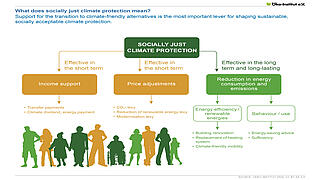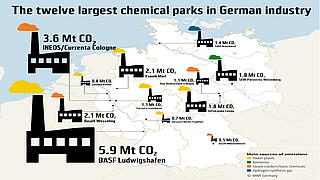With the adoption of the Paris Agreement in 2015, Germany pledged to achieve substantial reductions in its greenhouse gas emissions. In the Federal Climate Change Act and the Climate Action Plan, the German government set more detailed climate targets: the medium-term goal is to cut greenhouse gas emissions in Germany by 65% by 2030 compared to 1990 levels. Germany aims to achieve climate neutrality by 2045. Corresponding mitigation targets and actions have therefore been identified for the energy, industry, transport, buildings, agriculture and waste sectors and for land use, land use change and forestry (LULUCF).
Climate and energy law is a longstanding focus of attention for the Oeko-Institut’s legal researchers, whose work involves analysing, developing and elaborating climate change mitigation measures. In many instances, the first step is to establish that there is a need for legislation; the researchers then explore the political and legislative scope and identify suitable regulatory pathways. Whether the topic is the coal phase-out, carbon pricing or the reform of EU emissions trading – the Oeko-Institut develops proposals which, besides being legally viable, are fit for purpose, effective and efficient and do not impose disproportionate burdens on those directly and indirectly affected.











